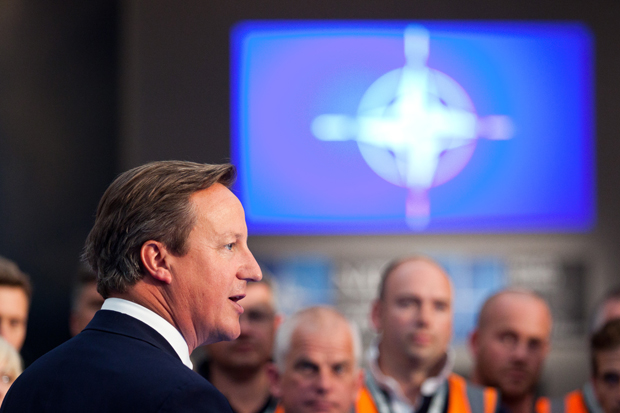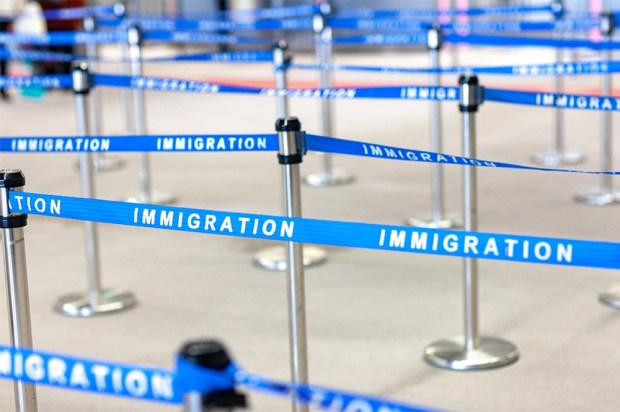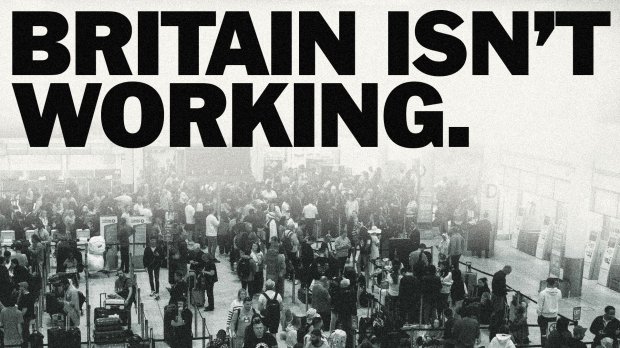The Leave campaign was right to pour scorn on David Cameron’s warning this week that Brexit could threaten Europe’s military stability and lead to war. Boris Johnson mocks the Prime Minister about his prophecy on page 14. If Cameron really believed that Britain leaving the EU could lead to war in Europe, why on earth did he risk having a referendum at all? Why was he suggesting until a few weeks before his negotiations with EU leaders that he would consider voting for Brexit if he didn’t get his way?
It’s easy to tease the increasingly shrill alarmism of the Remain campaign. But it is harder to say how exactly leaving the EU would make things better. It’s quite true that the EU has never had much of a role in international security, but the fallout from David Cameron’s speech does demonstrate a gap in the referendum debate.
A vast amount of time has been committed to discussing the strengths and weaknesses of the EU, but we are failing to talk about Nato. While it has broadened its membership greatly over the past two decades, its commitment to enforcing Article Five of its constitution — ‘an armed attack against one or more [of its members] in Europe or North America shall be considered an attack against them all’ — has begun to look increasingly feeble. Europe would be a safer place (and Vladimir Putin would be less emboldened) had Nato’s eastwards expansion been conducted with the same vigour as that of the EU.
The EU has been firm in its commitment to protect its newer former Soviet Bloc members. Though it mishandled its relationship with Ukraine (with appalling consequences), the EU has done far better by Poland, the Czech Republic and other Eastern European states — who cherish EU membership as a bulwark against Russian expansionism. The EU has successfully pulled these countries into the orbit of the West. In the space of a generation, Czechs and Poles who once fled to the West as refugees from the Soviets can now return to their homelands as European citizens with passports as valid in Prague as they are in Portsmouth. It’s hard to deny the EU’s role in winning the peace after the Cold War.
Nato’s eastwards expansion, by contrast, has been largely symbolic. Poland, Hungary and the Czech Republic joined in 1999, followed by most of the rest of Eastern Europe in 2004, yet there is still little Nato presence in any of those countries. The allied bases which formed Nato’s infrastructure in Western Europe during the first half–century of its existence have in no way been replicated in Eastern Europe.
The end of the Cold War was inevitably going to bring about the scaling-back of US military deployment in Western Europe and the British presence in Germany. But the folly of failing to match Nato’s rhetoric with real forces was exposed two years ago when Putin’s army rolled into the Crimea. At the same time, Russian planes began testing Nato by conducting military exercises in the airspace of its members.
Last year General Petr Pavel, the Czech chairman of Nato’s Military Committee, warned that Russia could, if it wished, conquer the Baltic states in just two days with little resistance. Since then, the US has announced that it will introduce more of a military presence in Eastern Europe, with 250 tanks and 4,200 troops deployed across countries bordering Russia. But it has rejected the case for having permanent bases there.
This reluctance is inconsistent with Nato’s promise to defend an attack on one country as an attack on all of its members. This is partly out of respect for the Founding Act signed between Nato and Russia in 1997 in which the former agreed not to station substantial permanent combat forces close to the Russian border. But, permanent forces or not, there has to be a robust response to Putin’s bluster. Last March 33,000 Russian troops staged an exercise that involved a mock seizure of the Baltic — not just the Baltic states but occupying Finland, Sweden, Norway and Denmark as well.
Nato’s eastwards expansion remains an extremely sore point in Russia, with former President Gorbachev, among others, claiming that the West had reneged on a promise not to extend Nato’s boundaries beyond East Germany. Yet there never was a formal agreement, and it is highly questionable that there was ever an informal one either. What Putin finds hard to accept is that countries made a free choice to leave the Warsaw Pact and join Nato. That remains the difference between Russia and the West, as it was in the Cold War: Western alliances are built on freedom.
In a little over a month’s time, British voters will make their own decision about whether they wish to continue as a member of the European Union or to engage in a looser, tailor-made trading relationship with the rest of Europe. To listen to politicians on both sides, it is as if Britain’s prosperity and liberty hinges on the answer to this question. It doesn’t. Prosperity would be ensured by lower taxes and regulatory restraint: all matters unrelated to EU membership. Security would come from investing in our military and confronting threats when they arise.
The Prime Minister is right to say that we ought never to take peace for granted. This is why it is so unwise of him to have cut military spending to the bone and to obsess about the EU rather than focus on Nato. As in the Cold War, the risks to the West will be minimised by showing resolve. That is Nato’s role, and it is one to which every member of that organisation needs to be committed.
It is a crucial debate, but one in which the EU is little more than a bystander.
Got something to add? Join the discussion and comment below.
Get 10 issues for just $10
Subscribe to The Spectator Australia today for the next 10 magazine issues, plus full online access, for just $10.
You might disagree with half of it, but you’ll enjoy reading all of it. Try your first month for free, then just $2 a week for the remainder of your first year.














Comments
Don't miss out
Join the conversation with other Spectator Australia readers. Subscribe to leave a comment.
SUBSCRIBEAlready a subscriber? Log in